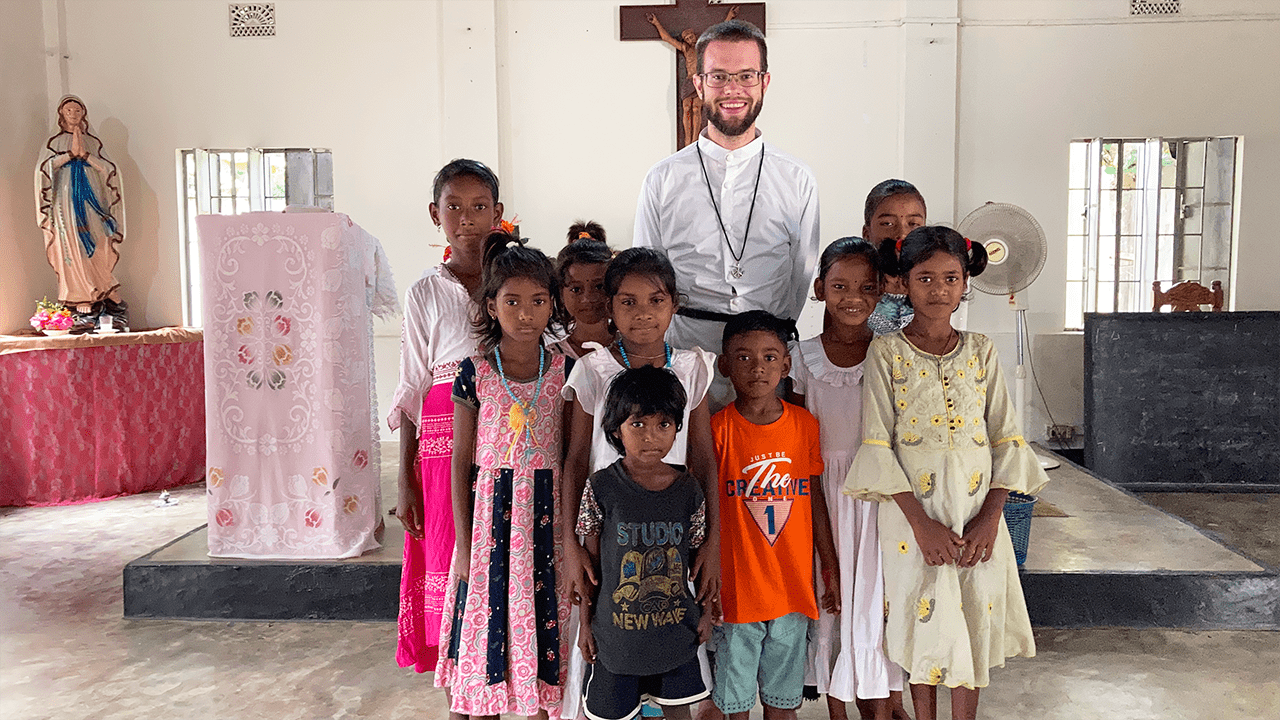Bangladesh. Invoking the name inspires a wide variety of internal responses. Some are captivated by images of the wild jungles of India and the Royal Bengal tiger. Others feel no attraction to the country that, at the time of its independence in 1971, was considered the poorest country in the world. But, truthfully, many others do not know that Bangladesh is even a country; or if they do, they may not have the slightest idea of where it is on the map. Regardless of your initial response, I hope that this series will be an opportunity to invite you into the hearts of the people of Bangladesh – one of the first parts of the world that Holy Cross ever sent missionaries to.
Holy Cross has a rich history in Bangladesh, and this series could be filled with the significant names, schools, religious on the path to sainthood, and significant events in the history of the Holy Cross mission in Bangladesh. While some of those people, places, and moments will occasionally pop up throughout this series, they won’t be my focus. Rather, I want you to “meet” a people who are otherwise anonymous, unknown, and, in the eyes of the world, insignificant, because in these encounters with the outcastes of our world, I came to encounter the living God. I imagine many, if not most Holy Cross missionaries might point to the same thing: while engaged in large-scale, culture-impacting works, it is the encounters with the People of God that continues to draw them into life in the missions.
In his message for the Fifth World Day of the Poor, Pope Francis wrote, “The poor, always and everywhere, evangelize us, because they enable us to discover in new ways the true face of the Father.” In this opening post, I want to share with you the first of my many experiences of being evangelized by the poor in Bangladesh.
This story takes place in Teliapara Tea Estate, a village I stayed in for three weeks that is about three and a half hours outside of Dhaka (the capital of Bangladesh) and an hour and a half away from the parish it is under. Teliapara is a crowded village of whose 250 families; 80 are Catholic. All the families in Teliapara work on the tea estate, either picking leaves or working in the factories, earning an average of about $1.70 a day.
On my first full day in Teliapara, one of the college-aged women who was hoping to be able to attend nursing school that year asked me, “Brother, will you forget us when you leave?” I had been in their village for less than 24 hours and had plans to stay for a few weeks, but the first question I received was if I would forget them when I left. This took me by surprise; I had yet to learn many of their names! I figured that I would remember them when I left, but how could I give my word to this young woman that I would remember her upon my eventual departure?
This simple question was repeated to me time and again, not just in Teliapara, but in many of the villages I visited throughout my time in Srimangal, Bangladesh. The people yearn to be seen, noticed, and, most importantly, remembered.
It was their desire to be remembered that opened Scripture anew for me, as I began to hear refrains of remembrance and forgetfulness dominating the whole of Scripture. When God decides to act on behalf of the people, Scripture speaks of it as God’s remembering his people as in the Exodus, “God heard their groaning, and God remembered his covenant with Abraham, Isaac, and Jacob” (Ex 2:24).
And when it seems that God is not acting on behalf of the people, especially the just, the psalmist frequently calls upon God to remember his people as when the psalmist cries out, “How long, O Lord? Will you forget me forever?” (Ps 13:1).
God’s great promise to his people is that God will never forget his beloved people. Through the prophet Isaiah, God proclaims,
“Can a woman forget her nursing child
or show no compassion for the child of her womb?
Even these might forget,
yet I will not forget you.” (Is 49:15)
What Good News God has to offer the people of Teliapara! God will always remember his people.
The pleas of the people of Teliapara not only awakened my awareness of Scripture’s constant return to the theme of God’s remembrance, but they also awakened in me the awareness of my own desire to be remembered by God. Ever since then I find myself praying along with the crucified thief, “Jesus, remember me when you come into your Kingdom” (Lk 23:42).
Of the many ways the people of the tea gardens evangelized me, the very first was their proclaiming of the Good News that God will always remember the poor and needy, “For the needy shall not always be forgotten, nor the hope of the poor perish forever” (Ps 9:18). I hope, in my poverty, to always be aware of my need for God and so to always be remembered by God.
Published on September 22, 2023




